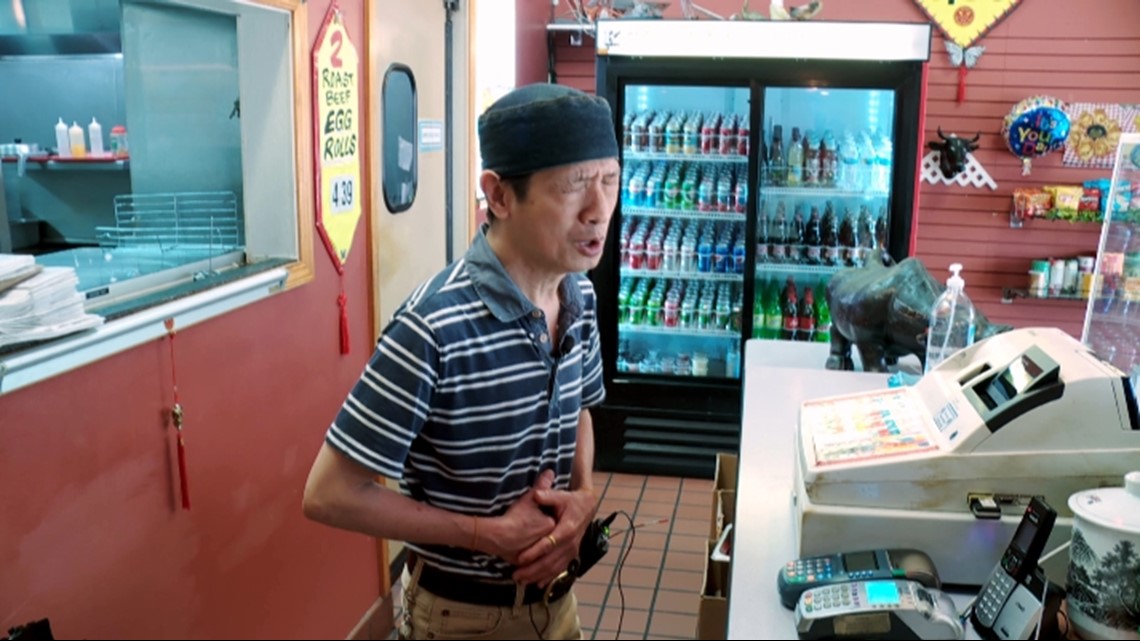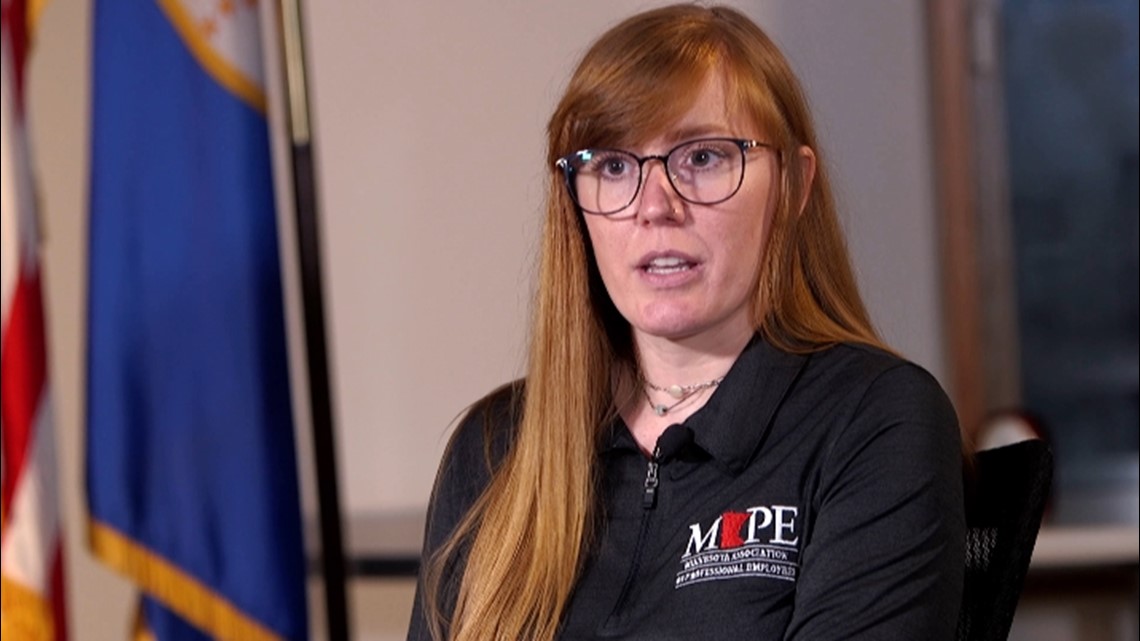ST PAUL, Minn. — The platform at the Dale Street light rail stop in St. Paul was packed when gunshots rang out in April 2017. Passengers ducked and yelled as two people exchanged fire in the crowd.
One of them was Devon Dewayne Glover, whose fired bullets hit and wounded a bystander, according to criminal records.
Three years and additional convictions later Glover was on supervised release when he was once again accused of firing his gun.
This time the victim was Bloomington restaurant owner Kevan Tran.
Police and Corrections Department whistleblowers say Glover’s case is indicative of a growing trend in Minnesota: Convicted criminals on probation and parole are being allowed to remain on the streets, even after serious violations of their release terms, which include committing new crimes.
The results can be devastating.


KARE 11 has documented at least 16 murders over the past two years allegedly committed by convicted criminals who were on probation or parole, had already been charged with a new serious crime, but were left on the street instead of being sent back to jail.
If their probation or parole had been revoked, they could or should have been behind bars at the time of the killings.
Raising red flags
“There are safety concerns both for our members and I think for the public safety,” said Megan Dayton, president of MAPE, the union representing the very Department of Corrections field officers assigned to monitor offenders like Glover who are on supervised release from prison.
An internal ombudsman’s report from late last year shows DOC revocations in 2020 were down 45 percent, part of a strategy to protect health as COVID ravaged prisons but also included in a long-term plan to focus on rehabilitation in the community.
The report included several anonymous interviews with DOC staff. Most supported the idea of reducing revocations for technical offenses and reducing the prison population, but told the ombudsman the policy “had swung too far.”


DOC staffers noted that it has become hard to get a revocation hearing “even for new, more serious offenses such as assault or being in possession of or in the presence of a firearm.”
They warned “community members or supervising agents will get hurt,” and records reveal they already are.
“We need the administration to understand that with a person-centered approach and with this desire to reduce the prison population, you have to put resources in to make that a successful endeavor,” Dayton said. “And that is not happening.”
Police leaders also say that a revolving door has kept more people on the street even after repeated serious violations for the conditions of their release. They argue it’s a small number of people in the community committing crimes over and over.
“There are people who need a second and a third chance,” said St. Paul Assistant Police Chief Robert Thomasser. “But there are some that are going to test the system. They are going to continue their criminal path until someone takes away the opportunity for them to do that.”
“That moment. So terrifying”
Kevan Tran says he was cleaning up after a long day in June of 2020 at Penn Lake Roast Beef, the Bloomington restaurant he owns and operates.
That’s when two men approached from the back of the restaurant, threatened him with a gun and demanded money.
“That moment, oh my God, so terrifying,” he recalls.


Tran opened the register but says Glover shot him anyway, hitting him twice in stomach. Tran crawled to a nearby liquor store for help and paramedics were able to save his life. Glover was charged with attempted murder.
Just days later in St. Paul, a woman working at a liquor store would also find herself at the wrong end of Glover’s gun, according to criminal charges. She told investigators three men robbed her and beat her with a gun. She needed staples in her head to close the wound.
Neither she nor Tran knew the man police would accuse of harming them had been in prison just months earlier, and had violated the terms of his release so many times his parole officer had asked to have Glover sent back a month before the crime spree.
“A Final Attempt”
After that light rail shooting, a judge cut Glover a break, giving him probation instead of a 3-year prison sentence on the condition he followed the rules. But after multiple probation violations and a new domestic assault charge in 2019, Glover was sent to prison in St. Cloud.
Months later, he was out again, on intensive supervised release with the DOC. But in the first few months of 2020 alone, Glover was:
- Arrested for allegedly shooting at his ex-girlfriend. A police report says a gun was found but lacked enough DNA evidence to prove Glover fired it, so he was not formally charged.
- Charged with a felony for allegedly stealing and using credit cards
- Arrested on a probation violation warrant for absconding for more than 100 days.
Even so, when his DOC field agent requested at a May 2020 hearing that Glover's parole be revoked, the hearing officer refused. He wrote that although Glover’s “factors would favor a revocation,” another attempt at release was appropriate.
Less than one month after that hearing Kevan Tran was shot. Glover is now facing charges in federal court and has plead not guilty.
No Crystal Ball
Department of Corrections Commissioner Paul Schnell disputes the idea that the desire to keep offenders in the community has gone too far, noting evidence shows they often have better outcomes.
“Sometimes returning people to prison can actually increase the likelihood of recidivism or revocation or escalate behaviors,” he explained.
Still, he admits when it comes to re-offending “there is no crystal ball.”


Schnell says since Glover was not charged with shooting at his ex-girlfriend, the department didn’t have enough evidence to revoke him. Plus, Schnell explained that Glover falls into a common category of offenders on parole - those so close to the end of their sentence they could only be returned to prison for a few months anyway.
“There is not going to be an intervention that we can meaningfully make,” Schnell asserted. “Ultimately they are going to come back to the same community, the same problems and oftentimes worse than when they came in on that revocation,” he added.
The last straw for any judge
One of the 16 murders identified in KARE 11’s analysis was the case of Alexis Saborit – charged with a crime so brutal witnesses didn’t believe their eyes.
“I didn’t think it was real,” said Alexis Prull.
An indictment alleges that Saborit cut off America Thayer’s head with a machete in broad daylight on a Shakopee street. Thayer was Saborit’s longtime partner and as court records show, the target of his abuse.
Charles Thayer says his mom was a “delightful person, very bubbly,” but that when she met Saborit “everything about her life started going downhill.”
“The abuse is so much that you can’t even air some of the things that I could describe to you,” he told KARE 11.


Charles watched a video of the slaying, disgusted by the brutality but not surprised.
“I don’t understand killing anybody. But certainly not to disgrace and deface and just to spit all over somebody’s family and who they are as a person,” he said.
Even before Saborit met America and moved to Minnesota he had multiple convictions in Louisiana, including one in which he tried to stab his then-girlfriend.
Making Charles Thayer even angrier, Saborit is an undocumented immigrant the U.S. had unsuccessfully tried to deport after the Louisiana convictions. His home country of Cuba refused to take him back.
Then, in 2017 Saborit was convicted of abusing Thayer but was given probation after she intervened on his behalf.
In 2019, he pleaded guilty to fleeing a police officer but was released on probation again.
In 2020, while still on probation, police say Saborit tried to burn down his apartment with others still inside. An arson complaint described how he was holding a machete and screaming out the window until the thick smoke became too much.
“That arson could have been the last straw for any judge,” Thayer said.
Devastating Consequences
It wasn’t the last straw. Records show Saborit remained on the street and on probation, even after his probation officer again requested that he be sent to jail. On the form, she checked the box saying his continued release would “endanger safety.”
America Thayer would eventually pay the price, authorities say. According to his indictment for murder Saborit told investigators Thayer was threatening to leave him on the day she died.
“Do you think had he been locked up it would have been easier for her to get away?” KARE asked Charles Thayer.
“Certainly,” he replied.
Instead, authorities say Saborit - a man who should already have been in jail - killed her.

